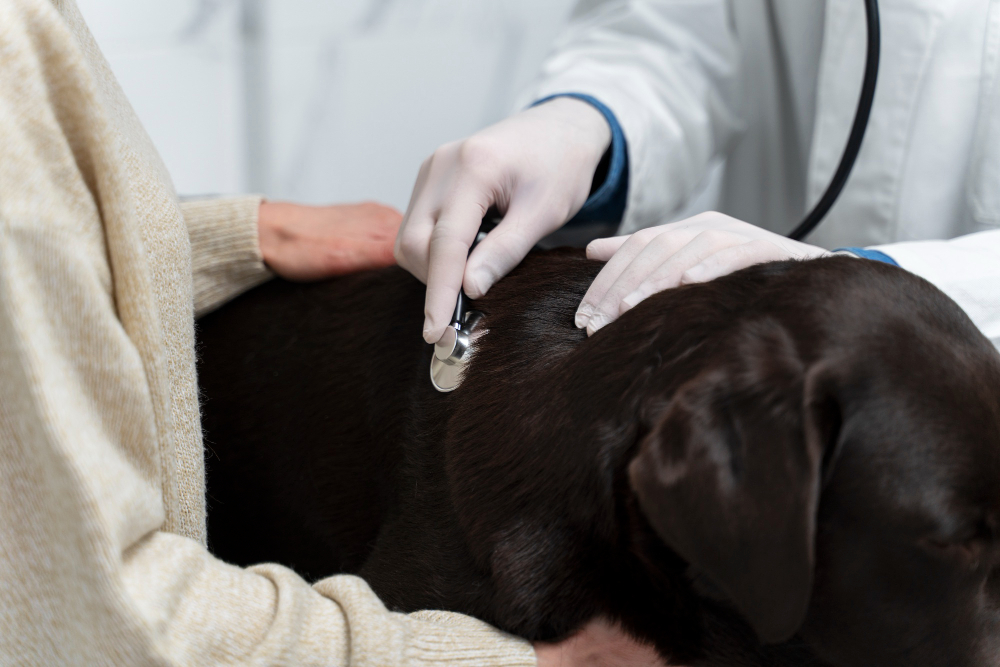Saying Goodbye with Family: Managing Other Pets During Euthanasia

Saying Goodbye with Family: Managing Other Pets During Euthanasia

Making the decision to say goodbye to a cherished pet is one of the most difficult choices a pet owner can face. Opting for in-home euthanasia provides a peaceful, private, and familiar setting for this final act of love. For households with multiple pets, this process introduces another layer of consideration: how will the other animals react? How can we help them understand and grieve?
Many pet owners in Jupiter, FL, and beyond worry about the impact of a pet’s passing on their other furry family members. It’s a valid concern. Animals form deep bonds, and the loss of a companion can be confusing and stressful for them. This guide will walk you through how to manage your other pets during an in-home euthanasia, ensuring the process is as gentle as possible for everyone involved.
Do Pets Grieve?
Before exploring how to manage the situation, it's important to acknowledge that pets do experience grief. While they may not understand death in the same abstract way humans do, they absolutely recognize absence and loss.
Grief in pets can manifest in several ways:
- Searching: They might look for their lost companion around the house, in their usual sleeping spots, or by the door.
- Changes in Vocalization: Some pets may become more vocal, while others grow unusually quiet.
- Altered Eating or Sleeping Habits: A grieving pet might lose their appetite or sleep more (or less) than usual.
- Lethargy or Depression: They might seem withdrawn and uninterested in activities they once enjoyed, like playing or going for walks.
- Clinginess: Some pets may become more attached to their human family members or other pets in the home, seeking extra comfort.
Recognizing these signs helps us approach the situation with the empathy and patience our surviving pets need.
The Role of Other Pets During In-Home Euthanasia
One of the most common questions we receive at Rover Veterinary Care is whether other pets should be present during the euthanasia procedure. There is no single right answer, as it depends entirely on the individual temperaments of your pets. You know them best.
Here are some factors to consider when making your decision.
Option 1: Allowing Other Pets to Be Present
Many veterinary professionals and grief counselors believe that allowing surviving pets to be present can be beneficial. It provides them with a tangible understanding of what has happened to their friend.
Benefits:
- Closure: Seeing their companion peacefully pass away can help pets understand why their friend is no longer moving or breathing. This can prevent them from endlessly searching the house for their missing friend.
- Reduced Anxiety: Instead of being separated and sensing the distress of their owners from another room, being present allows them to witness a calm and controlled event.
- A Chance to Say Goodbye: After the euthanasia is complete, other pets often approach to sniff and investigate their companion. This is their way of processing the finality of the situation. They may nudge their friend, lick them, or simply sit quietly nearby before moving on.
Considerations:
- Temperament: If your other pet is naturally anxious, territorial, or disruptive, their presence might add stress to an already emotional environment. A dog that barks incessantly or a cat that becomes agitated could disturb the peace of the moment.
- Your Own Emotional State: Your pets are highly attuned to your emotions. If you feel that managing another pet's presence would be too much for you to handle, it's okay to prioritize your own need for a calm space.
Option 2: Keeping Other Pets Separate
In some cases, it is better for everyone if other pets are kept in a separate, secure room during the procedure.
Benefits:
- A Calm Environment: This ensures the euthanasia process remains peaceful and focused on the pet that is passing, without any distractions.
- Reduced Stress for You: You can fully concentrate on your pet's final moments without worrying about how your other animals are reacting.
- Safety: It prevents any unpredictable behavior from an anxious or confused pet.
Considerations:
- Post-Procedure Introduction: If you choose this option, it is still highly recommended to allow the other pets to see and sniff the body of their deceased companion afterward. This is a crucial step for their understanding. Simply bringing the body to them in their separate room can provide the closure they need. Without this opportunity, they may experience prolonged confusion and anxiety, wondering where their friend has gone.
How to Support Your Grieving Pets After the Loss
The grieving process doesn't end when the veterinarian leaves. Your surviving pets will need your support in the days and weeks that follow.
1. Maintain Routine
Animals thrive on predictability. As much as possible, stick to your regular schedules for feeding, walks, and playtime. This consistency provides a sense of security and normalcy during a time of change.
2. Provide Extra Affection
Your pets may seek more comfort from you, so be generous with cuddles, petting, and gentle words. Your calm and reassuring presence will help them feel safe. However, try not to overdo it, as this can sometimes reinforce feelings of anxiety.
3. Monitor Their Health
Grief can sometimes manifest physically. Keep a close eye on your pets' eating and drinking habits. If a pet refuses to eat for more than a day or shows other concerning symptoms, contact your veterinarian.
4. Allow Time for Adjustment
The social hierarchy in your home will shift after a pet passes away. Allow your surviving pets to navigate this change at their own pace. Be patient as they establish new dynamics and routines.
5. Be Patient with Behavioral Changes
Your pet might exhibit behaviors you haven't seen before. Try to be patient and understanding. Avoid scolding them for new behaviors like increased vocalization or neediness. Instead, offer comfort and gentle redirection.
6. Take Care of Yourself
Your pets will pick up on your grief. It's important to allow yourself to mourn, but also to show your pets that life continues. Engaging in quiet, comforting activities together can be healing for both of you.
Your Partner in Compassionate Care
Deciding on in-home euthanasia in Jupiter, FL, is a profound act of love, and managing a multi-pet household through this process requires thoughtful consideration. Whether you choose to have your other pets present or separate, allowing them a moment to say goodbye is a compassionate step toward helping them understand and grieve.
At Rover Veterinary Care, we are here to support your entire family—two-legged and four-legged—through this difficult time. We can help you create a peaceful and dignified experience that honors the bond you share with your beloved companion.
If you're considering in-home euthanasia in Jupiter, FL, and have questions about how to best support your other pets, please contact Rover Veterinary Care today. We are here to provide guidance, compassion, and care.
